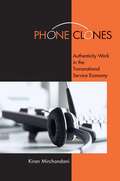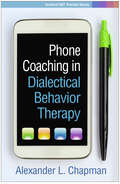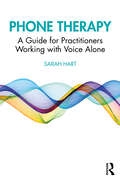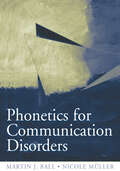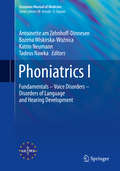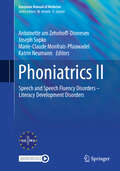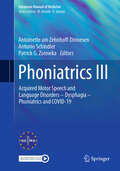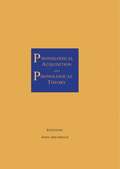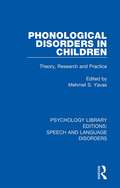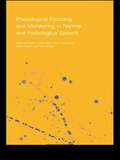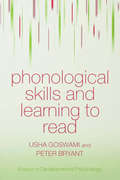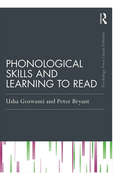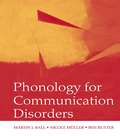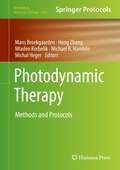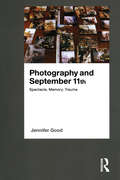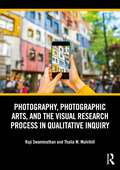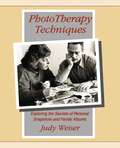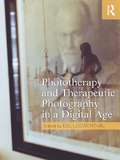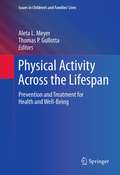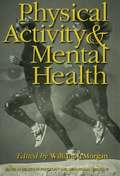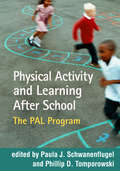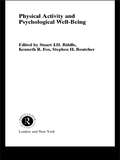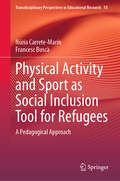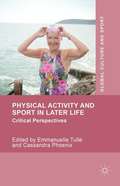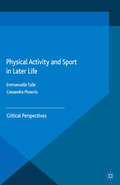- Table View
- List View
Phone Clones: Authenticity Work in the Transnational Service Economy
by Kiran MirchandaniTransnational customer service workers are an emerging touchstone of globalization given their location at the intersecting borders of identity, class, nation, and production. Unlike outsourced manufacturing jobs, call center work requires voice-to-voice conversation with distant customers; part of the product being exchanged in these interactions is a responsive, caring, connected self. In Phone Clones, Kiran Mirchandani explores the experiences of the men and women who work in Indian call centers through one hundred interviews with workers in Bangalore, Delhi, and Pune. As capital crosses national borders, colonial histories and racial hierarchies become inextricably intertwined. As a result, call center workers in India need to imagine themselves in the eyes of their Western clients-to represent themselves both as foreign workers who do not threaten Western jobs and as being "just like" their customers in the West. In order to become these imagined ideal workers, they must be believable and authentic in their emulation of this ideal. In conversation with Western clients, Indian customer service agents proclaim their legitimacy, an effort Mirchandani calls "authenticity work," which involves establishing familiarity in light of expectations of difference. In their daily interactions with customers, managers and trainers, Indian call center workers reflect and reenact a complex interplay of colonial histories, gender practices, class relations, and national interests.
Phone Coaching in Dialectical Behavior Therapy (Guilford DBT® Practice Series)
by Alexander L. ChapmanThis is the first comprehensive guide to phone coaching in dialectical behavior therapy (DBT)--an integral part of treatment that many clinicians find challenging. What are the principles and goals of phone coaching? What limits should be set? How can a therapist manage suicide risk during a brief call? DBT expert Alexander Chapman addresses these and other critical practical questions in this accessible book. He provides guidelines for coaching core DBT distress tolerance and emotion regulation skills; coaching "dos and don'ts"; and tips for structuring each call's beginning, middle, and end. Featuring many concrete examples, strategies, and model dialogues, the book includes a key chapter on suicide crisis calls.
Phone Therapy: A Guide for Practitioners Working with Voice Alone
by Sarah HartPhone therapy is as relevant as it was 50 years ago. The increased use of this medium during the COVID-19 pandemic, and the revision of professional therapy body guidance, has endorsed the validity and effectiveness of phone therapy. The book updates, revises and reinvigorates the medium for individual therapists, counselling services and training organisations in a post-lockdown world, where blended therapy is the norm. It includes practical considerations, phone-related theory, personal experience and self-reflection exercises. Contributing counsellor vignettes cover topics such as adapting theoretical modalities and EDI considerations without visual cues. From assessments, contracting and core skills to assumptions, disinhibition and privacy issues, it supports therapists and counselling organisations to embrace the accessibility, flexibility and creativity that therapy by phone provides. Relevant for experienced and trainee therapists alike, this book provides practitioners with the support and knowledge to confidently use phone therapy in their practice.
Phonetics for Communication Disorders
by Martin J. Ball Nicole MullerThis comprehensive textbook offers a basic introduction to phonetics in an applied systematic presentation that equips the communication disorders student to deal with the wide range of speech types that will be encountered in a clinic. While the major discussion is articulatory, speech acoustics are also examined. Illustrations of sample spectrograms appear in tandem with the more traditional articulatory drawings. Two CDs of sound examples accompany the textbook. This comprehensive textbook offers a basic introduction to phonetics in an applied systematic presentation that equips the communication disorders student to deal with the wide range of speech types that will be encountered in a clinic. While the major discussion is articulatory, speech acoustics
Phoniatrics I: Fundamentals – Voice Disorders – Disorders of Language and Hearing Development (European Manual of Medicine)
by Katrin Neumann Antoinette am Zehnhoff-Dinnesen Bożena Wiskirska-Woźnica Tadeus NawkaThis is the first of two volumes that draw on the specialized insights and extensive clinical experience of phoniatric experts in order to offer a basis for the development of concerted European training standards in phoniatrics, with the goal of guaranteeing a high quality of care for European patients in all age groups. The interdisciplinary character of phoniatrics is mirrored in the inclusion of valuable contributions from a range of other medical and non-medical disciplines. This volume focuses on voice disorders and disorders of language and hearing development. In each case a wide range of particular kinds of communication loss are considered. Basic aspects are fully addressed, and guidance provided on diagnostic methods, differential diagnosis, prevention, treatment/rehabilitation, and prognosis. An introductory section also discusses the fundamentals of phoniatrics. The reader will benefit from numerous color photos and tables as well as supplementary electronic material, including audio and video examples. This book is intended for residents and practitioners in phoniatrics and also for ENT physicians, medical students, logopedists, and speech and language pathologists and therapists.
Phoniatrics II: Speech and Speech Fluency Disorders – Literacy Development Disorders (European Manual of Medicine)
by Katrin Neumann Antoinette am Zehnhoff-Dinnesen Joseph Sopko Marie - Claude Monfrais-PfauwadelThis book, in three volumes, draws on the specialized insights and extensive clinical experience of phoniatric experts to offer a basis for the development of concerted European training standards, with the goal of guaranteeing a high quality of phoniatric care for all European patients. Communication disorders in all age groups are covered, and the interdisciplinary character of phoniatrics is mirrored in the inclusion of contributions from a range of other medical and non-medical disciplines. This second volume is devoted to speech, speech fluency and literacy development disorders. Basic aspects, including etiology and pathogenesis, are fully addressed, and guidance provided on diagnostic methods, differential diagnosis, prevention, treatment/rehabilitation, and prognosis. The reader will benefit from numerous color photos, tables as well as supplementary electronic material, including audio and video examples. This book is intended for residents and practitioners in phoniatricsand also for ENT physicians, medical students, logopedists, and speech and language pathologists and therapists.
Phoniatrics III: Acquired Motor Speech and Language Disorders – Dysphagia – Phoniatrics and COVID-19 (European Manual of Medicine)
by Antoinette am Zehnhoff-Dinnesen Antonio Schindler Patrick G. ZorowkaThis book series, in three volumes, draws on the specialized insights and extensive clinical experience of phoniatric experts to offer a basis for the development of concerted European training standards, with the goal of guaranteeing a high quality of phoniatric care for all European patients. Communication disorders in all age groups are covered, and the interdisciplinary character of phoniatrics is mirrored in the inclusion of contributions from a range of other medical and non-medical disciplines. This third volume is devoted to acquired motor speech and language disorders (dysarthria, dyspraxia, and aphasia), swallowing disorders, and phoniatric aspects in treatment of COVID-19 infections. Basic aspects, including etiology and pathogenesis, are fully addressed, and guidance provided on diagnostic methods, differential diagnosis, prevention, treatment/rehabilitation, and prognosis. The reader will benefit from numerous color photos, tables as well as supplementary electronic material, including audio and video examples. This book is intended for residents and practitioners in phoniatrics and also for ENT physicians, medical students, logopedists, and speech and language pathologists and therapists.
Phonological Acquisition and Phonological Theory
by John ArchibaldMuch of the work currently conducted within the framework of Universal Grammar and language learnability focuses on the acquisition of syntax. However, the learnability issues are just as applicable to the domain of phonology. This volume is the first to gather research that assumes a sophisticated phonological framework and considers the implications of this framework for language acquisition -- both first and second. As such, this book truly deals with phonological acquisition rather than phonetic acquisition.
Phonological Disorders in Children: Theory, Research and Practice (Psychology Library Editions: Speech and Language Disorders)
by Mehmet S. YavasOriginally published in 1991, the recent developments in the study of phonological disorders in children had led to a fruitful interaction between speech pathology and phonology. It is one aspect of the application of linguistic theory to the study of speech and language disorders which had opened up a new field, clinical linguistics. This book brings together the concerns of the linguist and the speech pathologist; the essays chosen share the quality of not discussing theory or therapy without addressing the implications one has for the other. By concentrating on recent work the editor hoped to stimulate further discussion in this important and fast growing area of research.
Phonological Encoding and Monitoring in Normal and Pathological Speech
by Roelien Bastiaanse Robert J. Hartsuiker Albert Postma Frank WijnenThis book reports recent research on mechanisms of normal formulation and control in speaking and in language disorders such as stuttering, aphasia and verbal dyspraxia. The theoretical claim is that such disorders result both from deficits in a component of the language production system and interactions between this component and the system that 'monitors' for errors and undertakes a corrective behaviour. In particular, the book focuses on phonological encoding in speech (the construction of a phonetic plan for utterances), on verbal self-monitoring (checking for correctness and initiating corrective action if necessary), and on interactions between these processes. Bringing together sixteen original chapters by leading international researchers, this volume represents a coherent statement of current thinking in this exciting field. The aim is to show how psycholinguistic models of normal speech processing can be applied to the study of impaired speech production. This book will prove invaluable to any researcher, student or speech therapist looking to bridge the gap between the latest advances in theory and the implications of these advances for language and speech pathology.
Phonological Skills and Learning to Read: Classic Edition (Essays in Developmental Psychology)
by Peter Bryant Usha GoswamiThis book sets out to integrate recent exciting research on the precursors of reading and early reading strategies adopted by children in the classroom. It aims to develop a theory about why early phonological skills are crucial in learning to read, and shows how phonological knowledge about rhymes and other units of sound helps children learn about letter sequences when beginning to be taught to read. The authors begin by contrasting theories which suggest that children's phonological awareness is a result of the experience of learning to read and those that suggest that phonological awareness precedes, and is a causal determinant of, reading. The authors argue for a version of the second kind of theory and show that children are aware of speech units, called onset and rime, before they learn to read and spell. An important part of the argument is that children make analogies and inferences about these letter sequences in order to read and write new words.
Phonological Skills and Learning to Read: Classic Edition (Psychology Press & Routledge Classic Editions)
by Peter Bryant Usha GoswamiIn this classic edition of their ground-breaking work, Usha Goswami and Peter Bryant revisit their influential theory about how phonological skills support the development of literacy. The book describes three causal factors which can account for children’s reading and spelling development: pre-school phonological knowledge of rhyme and alliteration the impact of alphabetic instruction on knowledge about phonemes links between early spelling and later reading. This classic edition includes a new introduction from the authors which evaluates research from the past 25 years. Examining new evidence from auditory neuroscience, statistical modelling and orthographic database analyses, as well as new data from cognitive developmental psychology and educational studies, the authors consider how well their original ideas have stood up to the test of time. Phonological Skills and Learning to Read will continue to be essential reading for students and researchers in language and literacy development, and those involved in teaching children to read.
Phonology for Communication Disorders
by Martin J. Ball Nicole Muller Ben RutterThis textbook describes the approaches to phonology that are most relevant to communication disorders. It examines schools of thought in theoretical phonology, and their relevance to description, explanation and remediation in the clinical context. A recurring theme throughout the book is the distinction between phonological theories that attempt elegant, parsimonious descriptions of phonological data, and those that attempt to provide a psycholinguistic model of speech production and perception. This book introduces all the relevant areas of phonology to the students and practitioners of speech-language pathology and is a companion volume to the authors’ Phonetics for Communication Disorders.
Photodynamic Therapy: Methods and Protocols (Methods in Molecular Biology #2451)
by Hong Zhang Michael R. Hamblin Mans Broekgaarden Mladen Korbelik Michal HegerThis collection explores state-of-the-art methods and protocols for research on photodynamic therapy (PDT) and its use in a wide range of medical applications, from antiviral to anticancer. Beginning with an extensive section on in vitro and in vivo models, the volume continues with chapters on oxygen-independent photosensitizers, next-generation photosensitization strategies, contemporary insights into the immunomodulatory effects of PDT, antimicrobial effects of PDT, as well as a variety of general biochemical and molecular biological techniques. Written for the highly successful Methods in Molecular Biology series, chapters include the kind of detailed implementation advice that ensures successful results in the lab. Thorough and authoritative, Photodynamic Therapy: Methods and Protocols serves as an ideal source of inspiration for both new and established PDT scientists and a guide for designing innovative research programs in this continuously advancing and multidisciplinary field.
Photography and September 11th: Spectacle, Memory, Trauma
by Jennifer GoodIt is all but impossible to think of September 11th 2001 and not, at the same time, recall an image. The overwhelmingly visual coverage in the world's media pictured a spectacle of terror, from images of the collapsing towers, to injured victims and fatigued firefighters. In the days, weeks and months that followed, this vast collection of photographs continued to circulate relentlessly. This book investigates the psychological impact of those photographs on a stunned American audience. Drawing on trauma theory, this book asks whether the prolonged exposure of audience to photographs was cathartic or damaging. It explores how first the collective memory of the event was established in the American psyche and then argues that through repetitive use of the most powerful pictures, the culture industry created a dangerously simple 9/11 metanarrative. At the same time, people began to reclaim and use photography to process their own feelings, most significantly in 'communities' of photographic memorial websites. Such exercises were widely perceived as democratic and an aid to recovery. This book interrogates that assumption, providing a new understanding of how audiences see and process news photography in times of crisis.
Photography, Photographic Arts, and the Visual Research Process in Qualitative Inquiry
by Raji Swaminathan Thalia M. MulvihillPhotography, Photographic Arts and the Visual Research Process in Qualitative Inquiry is a book that introduces doctoral students and early career researchers to photography as a significant dimension of visual qualitative methods.It examines the potential of photographic arts in qualitative research by highlighting theory and practice. Theories of photographic research and the types of photography within the genre are presented along with tips and exercises on how to conduct visual research through the use of photography. The central features of this book include learning to incorporate photography and photographic thinking through the arc of the research process. Question posing, data gathering, data analysis, and presentation and dissemination of photographic research ae discussed. Ethics for photographic qualitative research is discussed. Learning to consider all senses for visual analysis and to consider issues of power and equity in photographic research is explained. Readers of this book can practice different ways to think about photographic research through the exercises and tips offered at the end of each chapter.Graduate students and early career researchers who are interested in qualitative research will find this book valuable to learn and experiment with photography and photographic arts in visual qualitative research.
Phototherapy Techniques: Exploring the Secrets of Personal Snapshots and Family Albums
by Judy Weiser PhotoTherapy Centre Staff"PhotoTherapy Techniques: Exploring the Secrets of Personal Snapshots and Family Albums" is the most comprehensive introduction to the field of PhotoTherapy available. Emphasizing the "what", "why", and "how" of these practical techniques, this book has long been considered an excellent substitute for a training workshop! <p><p> Written by Canadian psychologist, art therapist, consultant, trainer, and PhotoTherapy pioneer Judy Weiser, this book (now in second edition) explains and demonstrates each of the major techniques involved, and provides theoretical rationale from both psychology and art therapy contexts. It also includes many photo-illustrated client examples, case transcripts, and practical experiential "starter" exercises so that readers can immediately begin using these techniques in their own practice. <p><p> This book is about photography as "personally-symbolic communication", rather than "art" -- exploring what a photograph is about emotionally, in addition to what shows on its surface visually. Thus these techniques require no previous experience with cameras or photographic art -- and they can therefore be used successfully by therapists of all theoretical orientations, work settings, or client specializations. <p><p> Often used as a text for university courses as well as for "Continuing Education" licensing credits for numerous mental health professions, this book is a "must" for not only therapists and counselors, but also anyone interested in coaching, personal development, art therapy, social change, diversity training, conflict resolution, special education, community development, visual literacy, visual anthropology/sociology, visual-based research, and even scrapbooking! <p><p> Though long-considered a "classic" for teaching how to use photos in people-helping work, this book is still even more relevant in this "digital age" of mobile phone pictures and online sharing (because it is about the "heart part" of these images rather than their "art part!"!) -- and thus not at all dependent upon which kind of technology created them! <p><p> *For more information, see her Website "PhotoTherapy & Therapeutic Photography Techniques", at: www.phototherapy-centre.com
Phototherapy and Therapeutic Photography in a Digital Age
by Del LoewenthalThe digital age has brought about a world-wide evolution of phototherapy and therapeutic photography. This book provides both a foundation in phototherapy and therapeutic photography and describes the most recent developments. Phototherapy and Therapeutic Photography in a Digital Age is divided into three sections: In the first, an introduction and overviews from different perspectives; in the second, approaches and contexts, including phototherapy, re-enactment phototherapy, community phototherapy, self-portraiture, family photography. This is followed by a conclusion looking at the future of phototherapy and therapeutic photography in terms of theory, practice and research. The book is for anyone interested in the therapeutic use of photographs. It will be of particular interest to psychological therapists and especially psychotherapists, counsellors, psychologists and art therapists, as well as photographers and others wishing to explore further the use of photographs therapeutically within their existing practices.
Physical Activity Across the Lifespan
by Thomas P. Gullotta Aleta L. MeyerThe statistics are disturbing: steadily rising numbers of sedentary overweight children and obese teens, and a generation looking at a shorter life expectancy than their parents'. But while it may be obvious that physical fitness benefits both the mind and body, a growing research base is supplying evidence of why this is so, and how these benefits may be reproduced in greater numbers. Physical Activity Across the Lifespan makes a clear, scientific case for exercise, sports, and an active lifestyle in preventing illness and establishing lifetime health habits at both the individual and the population levels. The book focuses on key aspects of physical/mental well-being--weight, mood, and self-regulation--and the role of physical activity in public health and school-based interventions targeting these areas. Contributors review definitional and measurement issues salient to understanding what physical activity is, to analyzing benefits of participation, and to implementing effective interventions. Also addressed are limitations of current research, steps needed to continue building the field, and emerging therapeutic possibilities for activity, such as the role of rough and tumble play in preventing ADHD. Included in the coverage: Physical activity, cognition, and school performance. The influence of social and built environments on physical activity in middle-aged and older adults. Preventing and treating obesity through physical activity. Physical activity in preventing drug use and treating chemical dependence. Antidepressant properties of physical activity. Schools as a foundation for physical activity and an active lifestyle. Physical activity as an adjunct or booster to existing interventions. Physical Activity Across the Lifespan is an innovative text for researchers and practitioners in various disciplines including health promotion/disease prevention, child and school psychology, education, health psychology, and public health, as well as program developers and policymakers in these areas.
Physical Activity And Mental Health (Series in Health Psychology and Behavioral Medicine)
by William P. MorganFirst published in 1997. Routledge is an imprint of Taylor & Francis, an informa company.
Physical Activity and Learning After School: The PAL Program
by Paula J. Schwanenflugel Phillip D. TomporowskiEvery school day, more than 10 million children attend after-school programs in the United States. This book provides a research-based blueprint for offering students in grades 1-5 innovative programming that combines intensive physical activity and social-emotional skills development with academic enrichment in reading, mathematics, and social studies. Presented is an integrative approach that has been developed and tested in high-poverty schools. The volume includes explicit guidance for setting up a program, implementing cognitively engaging physical games and learning activities, working effectively with mixed-age groups, and monitoring outcomes. Reproducible forms and lesson plans can be downloaded and printed in a convenient 8 1/2" x 11" size.
Physical Activity and Psychological Well-Being
by Stuart J. H. Biddle Kenneth R. Fox Stephen H. BoutcherThe 'feel-good' effect of physical activity is widely reported among participants. Physical Activity and Psychological Well-Being represents a research consensus on the relationship between physical activity and aspects of mental health, providing an overview of the case for the role of exercise in the promotion of psychological well-being. Topics covered include: * anxiety and stress* depression* mood and emotion* self-perceptions and self-esteem* cognitive functioning and ageing* psychological dysfunction This book is invaluable reading for students and researchers working in the exercise, sport and health sciences, and for health and clinical psychologists. It is also a foundation text for health promotion and health service professionals, particularly those working in the area of mental health.
Physical Activity and Sport as Social Inclusion Tool for Refugees: A Pedagogical Approach (Transdisciplinary Perspectives in Educational Research #10)
by Núria Carrete-Marín Francesc BuscàThis book addresses the social benefits of physical activity and sport in promoting the social and educational inclusion of refugees living in Europe in line with Sustainable Development Goals 4, 10 and 16. It provides a theoretical framework supported by evidence obtained from a case study in the Spanish context. The book demonstrates how universities and formal and non-formal educational institutions, by means of service-learning activities managed by physical and social educators, enable refugees and students to practice physical activity, develop further learning and establish stable social networks. It shows how a pedagogical approach to physical activity can improve relationships between students and refugees and promote inclusion of all. It discusses the value of diversity in education and educational research, as well as transdisciplinarity in new educational and research approaches.
Physical Activity and Sport in Later Life: Critical Perspectives (Global Culture and Sport Series)
by Emmanuelle Tulle Cassandra PhoenixPhysical Activity and Sport in Later Life.
Physical Activity and Sport in Later Life: Critical Perspectives (Global Culture and Sport Series)
by Emmanuelle Tulle Cassandra PhoenixThis volume addresses key issues such as the cultural and discursive context in which physical activity is discussed; the process of becoming physically active; the role of care settings in enabling physical activity; pleasure; gender; and place and space.
